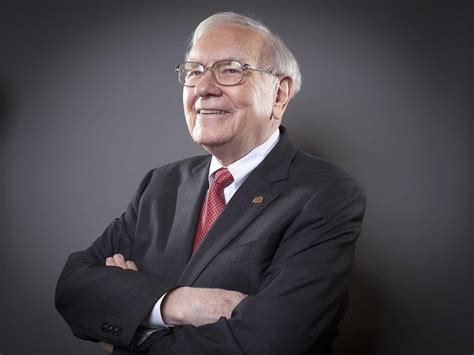Discover the influential life of a financial expert, from early life and education to investment strategies, long-term thinking, philanthropy, and financial market influence.
Early Life and Education
Contents
Warren Buffett was born on August 30, 1930, in Omaha, Nebraska. He was the second of three children and displayed an early interest in business and investing. His father, Howard Buffett, was a stockbroker and served four terms in the U.S. House of Representatives. Buffett purchased his first stock when he was 11 years old and filed his first tax return at the age of 13, claiming a deduction for his bicycle, which he used for his paper route.
Buffett attended Alice Deal Junior High School, where he first displayed an affinity for making money. At the age of 15, he invested in a 40-acre farm, which he rented out for a profit. After graduating from high school, he went on to attend the University of Pennsylvania, where he studied business. Later, he transferred to the University of Nebraska, where he completed his degree in business administration.
Despite having many brilliant ideas, Buffett was initially rejected from Harvard Business School. Undeterred, he went on to study under Benjamin Graham at Columbia University, where he earned a Master’s degree in economics. Graham’s value investing strategy had a profound influence on Buffett’s investment approach and laid the foundation for his future success.
Buffett’s early life and education were instrumental in shaping his investment philosophy and paved the way for his eventual success as one of the most influential figures in the financial world.
Investment Strategies
When it comes to investment strategies, Warren Buffett is famous for his long-term approach. He believes in investing in companies with strong fundamentals and a competitive advantage, rather than constantly buying and selling stocks based on market trends.
Buffett’s strategy involves carefully analyzing a company’s financial health, management team, and industry position before making an investment decision. He is known for his patient approach, often holding onto stocks for many years, taking advantage of the power of compounding interest to grow his wealth.
One of Buffett’s most famous investment strategies is to be fearful when others are greedy and greedy when others are fearful. In other words, he believes in buying stocks when they are undervalued and selling when they are overvalued, rather than following the crowd and getting caught up in market bubbles.
Warren Buffett also advocates for diversification, warning against putting all of your eggs in one basket. While he is known for his focus on a concentrated portfolio of stocks, he emphasizes the importance of spreading risk across a variety of industries and asset classes.
In summary, Warren Buffett’s investment strategies are centered around a long-term, value-based approach to investing, patience, and a focus on fundamental analysis rather than market speculation.
Value of Long-term Thinking
Warren Buffett, one of the most successful investors of all time, is known for his long-term thinking when it comes to investing. He believes that taking a long-term approach to investing is crucial for achieving success in the stock market. Buffett is famous for his buy-and-hold strategy, which involves holding onto investments for extended periods, sometimes even decades.
One of the key benefits of long-term thinking in investing is the ability to ride out fluctuations in the market. By holding onto investments for the long term, investors can avoid the temptation to buy and sell based on short-term market movements, which can often lead to lower returns. Buffett has famously said, Our favorite holding period is forever, emphasizing the importance of staying committed to investments over the long term.
Another advantage of taking a long-term approach to investing is the ability to benefit from the power of compounding. When investments are held for an extended period, any returns earned on those investments can be reinvested, leading to exponential growth over time. This can result in significant wealth accumulation for investors who are willing to take a patient, long-term approach.
Buffett’s emphasis on the value of long-term thinking has had a significant impact on the investment community, encouraging others to prioritize long-term success over short-term gains. By following Buffett’s example and adopting a long-term mindset, investors can potentially achieve greater success and build wealth over time.
Philanthropy and Giving
Warren Buffett, the renowned investor, is also well-known for his philanthropy and giving back to society. His commitment to philanthropy has set an example for others in the business world. His decision to donate the majority of his wealth to charitable causes has had a significant impact on various organizations and initiatives.
Buffett has often emphasized the importance of using wealth to make a positive difference in the world. He believes in the concept of giving back and has pledged to donate 99% of his fortune to charitable causes, primarily through the Berkshire Hathaway Foundation.
One of the key principles of Buffett’s approach to philanthropy is to focus on addressing the root causes of issues, rather than simply providing temporary solutions. This long-term perspective reflects his belief in making a lasting impact on society and creating a better future for generations to come.
Through his philanthropic efforts, Buffett has supported various causes, including education, healthcare, and poverty alleviation. His contributions have played a significant role in bringing about positive change and improving the lives of countless individuals.
Influence on Financial Market
Warren Buffett, often referred to as the Oracle of Omaha, has had a substantial influence on the financial market. As the chairman and CEO of Berkshire Hathaway, Buffett’s investment decisions and strategies have garnered widespread attention and admiration. His long-term approach to investing, emphasis on value, and unique business acumen have set him apart as a leading figure in the world of finance.
One of the ways in which Buffett has influenced the financial market is through his commitment to long-term thinking. While many investors focus on short-term gains and market fluctuations, Buffett advocates for a patient and disciplined approach to investing. His willingness to hold onto investments for extended periods of time has demonstrated the value of enduring through market volatility and staying true to the fundamentals of a company.
In addition to his investment strategies, Buffett’s philanthropic efforts have also made a significant impact on the financial market. Through his commitment to giving back and his pledge to donate the majority of his wealth to philanthropic causes, Buffett has set an example for other successful investors and business leaders. His influence has sparked conversations about the role of wealth and responsibility in shaping the financial landscape.
Buffett’s insights and perspectives on the market have been widely sought after, and his annual letters to shareholders have become a point of reference for many in the investment community. His emphasis on the intrinsic value of a company, as well as his caution against speculative and risky investments, has shaped the investment philosophies of countless individuals and institutions.
Overall, Warren Buffett’s influence on the financial market extends far beyond his personal investments. His principles, ethics, and long-term vision have left an indelible mark on the world of finance, inspiring others to approach investing and wealth management with prudence and purpose.












